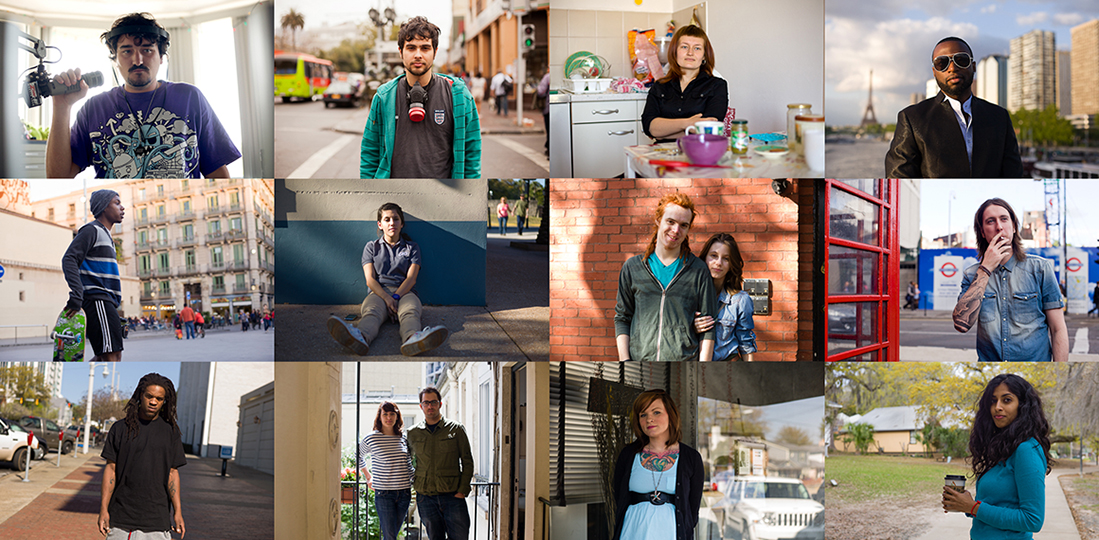
A new survey from the Reason Foundation on the political views of young Americans has left commentators perplexed. Derek Thompson at the Atlantic says millennials’ political views “don’t make any sense”; Dylan Matthews at Vox says they’re “totally incoherent.” It’s true that millennials don’t seem to fit on the traditional liberal-conservative spectrum, but before analysts throw up their hands, they should clean their glasses and take another look. What seems like a contradictory jumble of preferences is a rational response to a dysfunctional political, economic and social system.
The first thing to consider about this survey is the source: The study’s funders, Reason and the Arthur N. Rupe Foundation, are committed to advancing libertarian ideas. Even the reader who hadn’t been apprised of their leanings could read it in the survey questions. The authors are quick to associate merit with market outcomes, want to know if young people favor the legality of large sodas, and proudly present Rand Paul as the potential Republican candidate “least underwater” with millennials. Rhetorically, the survey report suggests that young Americans, with their tolerance on social issues and distrust of the government, are ripe for libertarian recruitment. There’s only one problem: Millennials are skeptical of capitalism.
In a 2011 poll centered around Occupy Wall Street, the Pew Research Center for the People and the Press found that adults under 30 had a much more negative view of capitalism than other demographics. Under-30s had an overall negative impression of capitalism (46–47), matching liberal democrats and self-identified supporters of OWS. Even the Reason poll found 43 percent of respondents favoring socialism to capitalism. This would be less remarkable if the U.S. had a socialist party or an anti-capitalist culture, but it doesn’t. The closest experience of such things millennials have enjoyed is an unfunded hodgepodge sequence of park occupations. Capitalist ideology has close to zero competition in American politics, but it can just barely muster a majority among young people in a poll run by the free-market fan club.
It’s no surprise that millennials aren’t content with the way things are going. The rest of America feels the same way. Earlier this month, the Huffington Post announced the results of another public opinion survey with my favorite headline of the year: "American Dissatisfaction With Everything Is Reaching Historic Levels." The poll found nearly three-quarters of respondents “unsatisfied,” mostly related to a lackluster economy and an unresponsive political system. Things are so bad that the very legitimacy of American democracy is in dispute: 73 percent believe the government operates without the consent of the people and two-thirds believe they have no say. With95 percent of the income gains since the recession ended accruing to the top 1 percent of earners, it isn’t cynicism for most people to feel unrepresented by our political and economic system, it’s common sense.
If you consider the circumstances of their political development, millennials would have to be a generation of credulous fools to trust the government at all. From 9/11 on, they saw firsthand the devastation wrought by the Bush administration’s dishonesty. The biggest protests the world has ever seen couldn’t stop an ill-advised war on Iraq, and half-assed regulation-by-crony set the economy up for a heavy fall. The Obama ’08 campaign squeezed out enough hope to win, but nearly six years later the promised change hasn’t followed. After repeatedly insisting that the National Security Agency wasn’t spying on everyone, the government has been forced — by another untrusting millennial, former NSA contractor Edward Snowden — to concede that the NSA actually has been spying on everyone. Politicians who “evolve” (i.e., flip) on gay marriage have pushed the issue forward, but they also look morally unmoored, as if they can’t figure out how to treat people decently without a pollster’s help.
Every day there’s another story about government corruption or inefficiency. Whether it’s fighters of the Islamic State of Iraq and the Levant (ISIL) bragging about the U.S. military trucks they’ve seized in Iraq, or revelations about profiteering off government contracts or the shocking story that our own contractors spend at least some of their time threatening to murder State Department investigators, news about what happens with government resources is usually bad news. No wonder the Reason study finds that a plurality of millennials don’t trust either party on most of the major issues and two-thirds think the government is wasteful and inefficient. But even though millennials are wary of the bureaucracy, a strong majority of young Americans still believe in government entitlements: 54 percent believe the state should guarantee a college education, rising to 69 percent for health insurance, and a whopping 74 percent believe everyone deserves enough to eat and a place to sleep.
From food trucks to marijuana, the Reason report shows millennials are in favor of people doing their thing without state interference, but these are not the future capitalists the surveying foundations were hoping for. American millennials can’t possibly trust the government, but we still believe in a social safety net that takes care of everyone. This combination of libertarian and socialist values unnerves the major parties and unimaginative commentators, but it’s a logical response to the last 15 years. We’ve seen what happens when people don’t have anything to fall back on but the market, as well as what happens when the government feels entitled to know everything about everyone, and we don’t want either.
Caught between the market and the state, millennials might look “totally incoherent” when you ask them to pick one. But life isn’t a poll, and civic participation isn’t a multiple-choice test. These libertarian socialists don’t make sense to party partisans or the elderly, but there are more of them every day. If they reject the choice between door No. 1 and door No. 2, they’ll need to create some more options.
3 WAYS TO SHOW YOUR SUPPORT
- Log in to post comments












